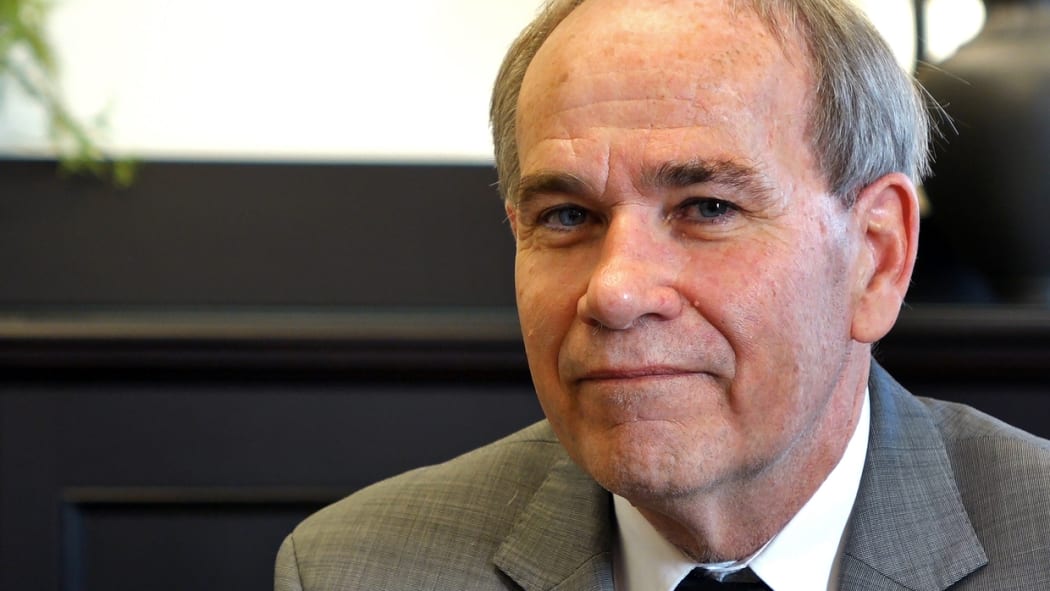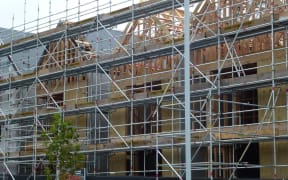Home buyers are fighting for houses in previously snubbed suburbs on the outskirts of Auckland's central city, as their values soar.
The Auckland Council yesterday released details of its latest three-yearly property revaluations, which reveal an average 35 percent increase in house values.
In some suburbs, like Point England, Glen Innes and Mangere Bridge, values have jumped more than 50 percent.
And properties with increases significantly higher than the regional average, are tipped to face larger rates rises from mid-next year.
A West Auckland man who won an auction for a house in Mangere Bridge yesterday, said he had been eyeing up the area for years.
The man, who did not want to be named, said he moved into a fixer-upper house in Avondale specifically to build equity to get into the suburb.
"We kind of rushed it through because we think this area's going to be on the up a bit - there's a bit more pressure on it," he said.
"So yeah we kind of did it in a hurry because of some of the media hype actually."
He said he and his wife were looking for a house to do a bit of work on, with a back yard for his children.
"We just like the lifestyle of Mangere itself - it's a bit more low key than other parts of the city."
The house he won yesterday, originally bought in 1972 for $14,000, sold for just shy of $700,000.
A real estate agent working in Mangere Bridge, Jared Cooksley, said interest in the area had spiked over the last year, and competition was fierce.
"We've got two ends of the market here, and that's why you've probably seen such a dramatic increase in the CV values," he said.
Mr Cooksley said there were first-home buyers looking in the area, as well as people from other suburbs looking to downsize and release equity from their property.
Which is why residents Scott Williams and his girlfriend, who have lived in the suburb for a week, said they were glad they got in when they did.
"The week that we got the house, there was a headline saying Mangere Bridge was the new Ponsonby," he said.
"We obviously just got in at the right time."
As for rate hikes, Mr Williams said they were just part of the maths a buyer needed to do before signing the deed.
Chief Executive of the Real Estate Institute of New Zealand Helen O'Sullivan said people looking to buy a house needed to take potential rate hikes into account.
Ms O'Sullivan said the latest valuations would give buyers a much more realistic guide as to whether they can afford the purchase.
'First home buyers not being priced out'
Auckland mayor, Len Brown, said first-home buyers in Auckland should not feel they are being priced out of the market, despite the big rise in house values.
"We are currently involved with the Government with our housing accord and with the private sector where we are working very closely to get supply into the housing market with the private sector builders."
He said that this year, under the housing accord the council would see 9000 new building consents and permits to enable homes to be built.
Mr Brown also said the council could not yet say how much rates will go up next year.
Mr Brown told Morning Report that before the revaluations the proposed rate rise was 3.5 percent.
"With the average valuation increase at 33 percent, with most of them between 25 and 40 percent value increases, if it was within the bounds, small increases or small decreases, depending on whether it's up or down.

Auckland Mayor Len Brown Photo: RNZ / Kim Baker Wilsson
"What the exact dollar figure , that we haven't worked out yet, because we have to go through quite and exercise, but we will find out in the next week."
Govt policies 'working'
Prime Minister John Key said the Government's housing policies are beginning to work.
He said the ratings record what happened in the past, but he believed there were signs the housing market in Auckland is beginning to slow down.
Building activity was very strong, many consents are being undertaken, more land was available, and the rise in house prices is slowing, he said.
Mr Key said Auckland house price inflation is a 20-year problem that will take some time to solve.


